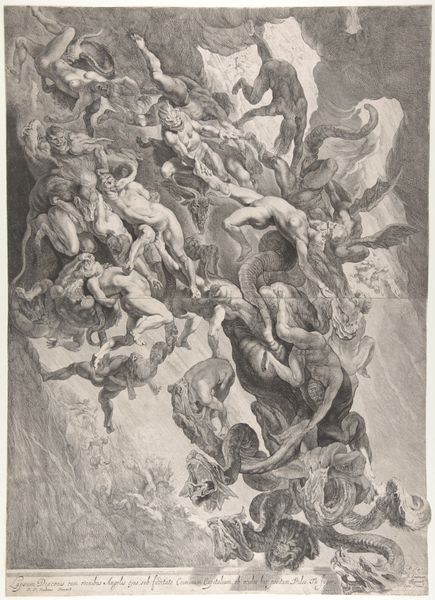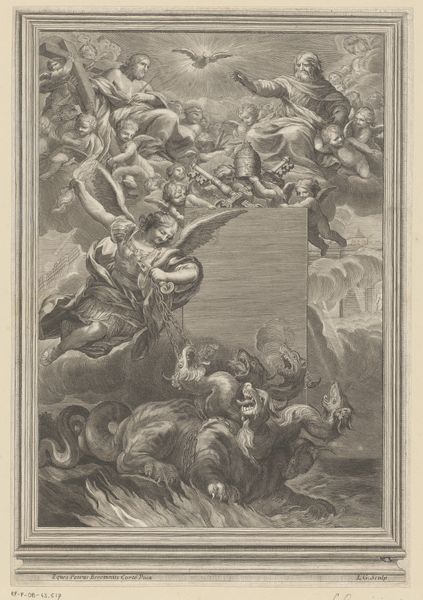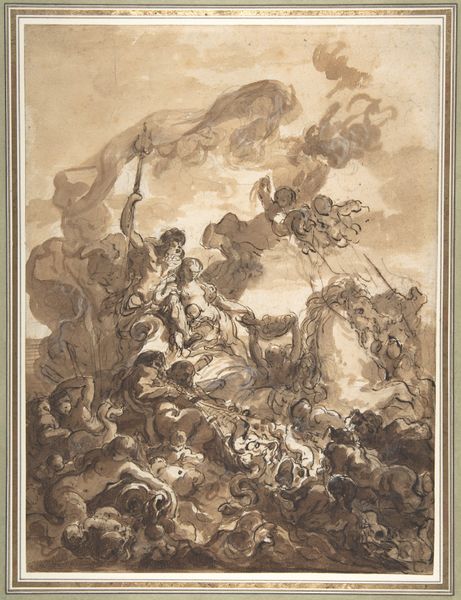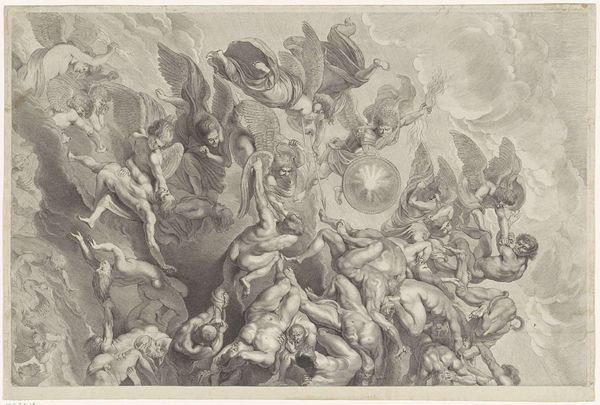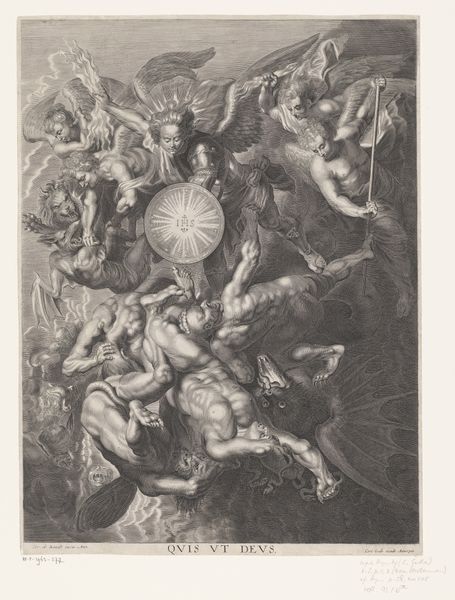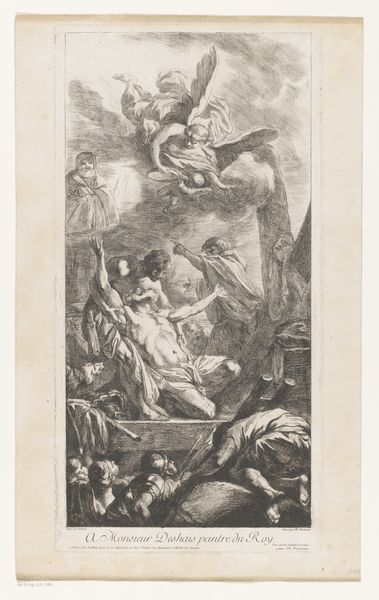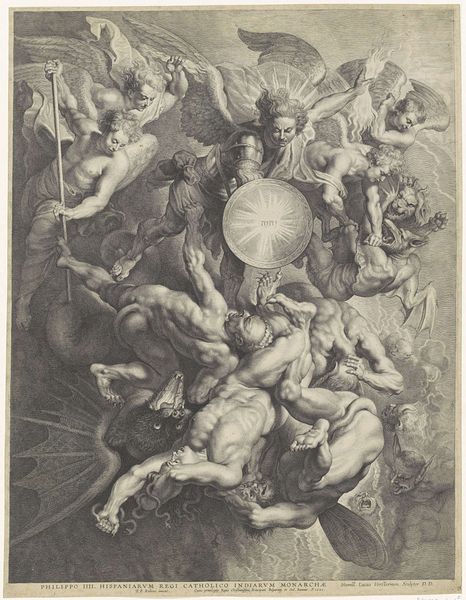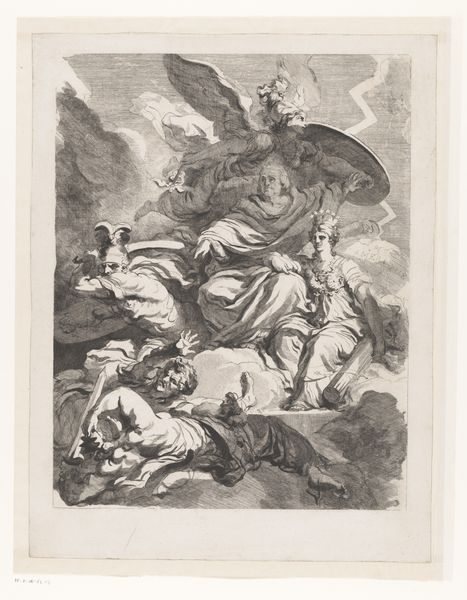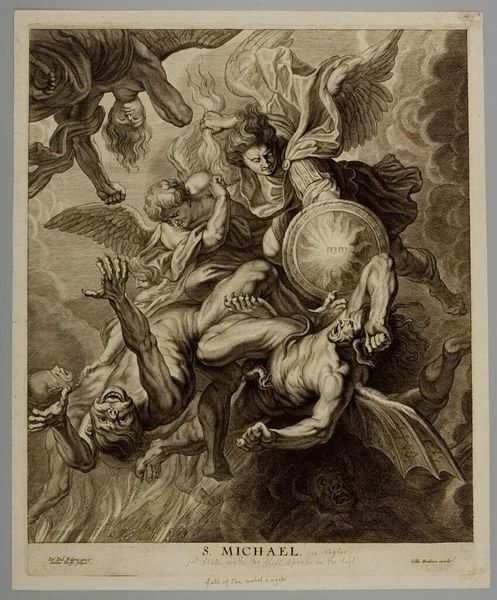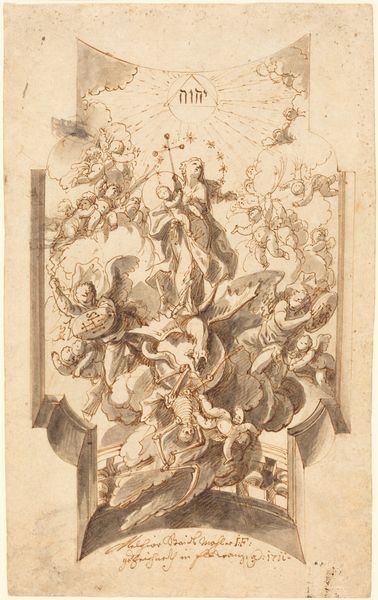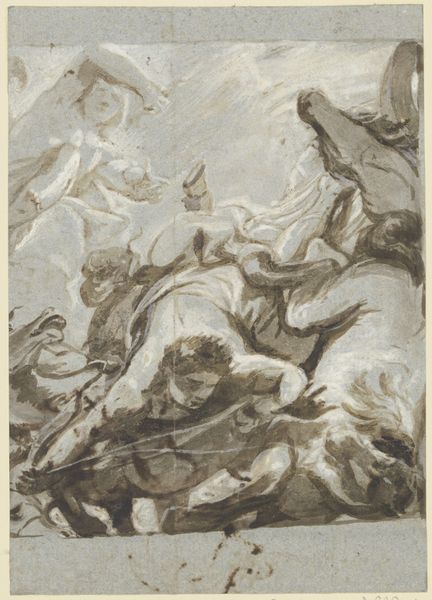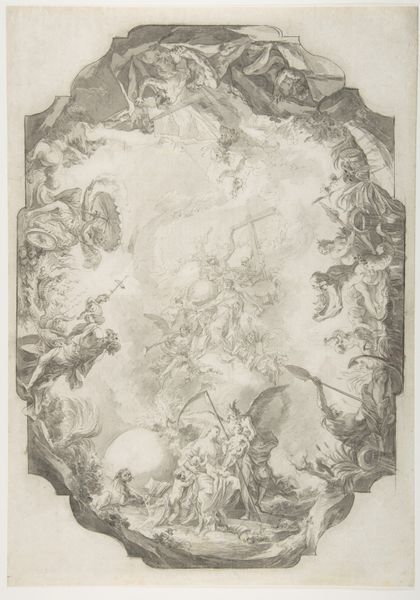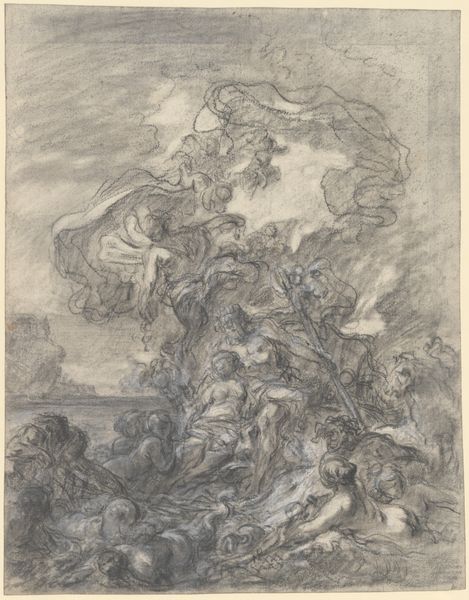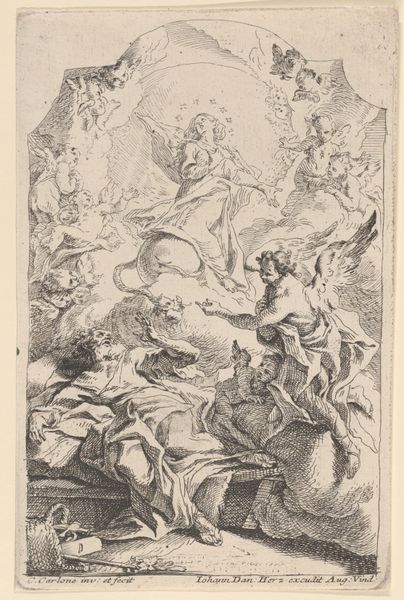
engraving
#
allegory
#
baroque
#
landscape
#
charcoal drawing
#
figuration
#
charcoal art
#
underpainting
#
chiaroscuro
#
line
#
history-painting
#
engraving
Dimensions: height mm, width mm
Copyright: Rijks Museum: Open Domain
This print, The Fall of the Rebel Angels, was made by Alexis Loir sometime before his death in 1713. It is an etching, which means that Loir would have painstakingly drawn an image into a wax ground on a metal plate, then bathed the plate in acid to eat away the exposed lines. Look closely, and you can see the effects of this process. The acid bites give the lines a crisp, precise quality. The artist was also able to create subtle tonal variations by controlling the depth of the etching. This would have required careful craftsmanship. Prints like this one were made to disseminate images widely. Consider it a proto-photocopy. Loir wasn't just an artist, he was also participating in a system of production, where images could be reproduced and consumed. So, while the subject matter is religious, its production is tied to wider social issues of labor, politics, and consumption. It reminds us that art and craft are always intertwined with the world around them.
Comments
No comments
Be the first to comment and join the conversation on the ultimate creative platform.
